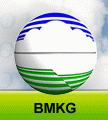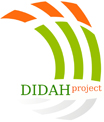Didah
project description | Background and frameworkThe
Vice Minister for Transport, Public Works and Water management, Mrs. J.C. Huizinga
- Heringa visited Indonesia in January 2009. During this visit she discussed among
others water management and climate change with BMKG, the National Meteorological
Service of Indonesia. During these talks, Mrs. Huizinga agreed to support a new
cooperation project between BMKG and KNMI to digitize and make available for research,
historical climate data from the Indonesian region. In the framework of
this project Didah, which officially started on the 10th of July 2009 and will
last until December 2011, BMKG and KNMI will digitize millions of handwritten
and printed historical weather and climate observations from the period 1850 –
present. Especially in view of the global warming issue, this new and additional
information on the Indonesian climate will be invaluable for climate researchers
and others in the region who depend on a better understanding of climate and weather
extremes. The Didah project will not only produce newly digitized historical
climate data. BMKG will archive and process the data and produce climate information
e.g. on trends, patterns and extreme weather events. BMKG will adopt state of
the art database techniques and climatological methods and tools that were developed
at KNMI to establish a web-based climate (change) information system for the Indonesian
region. To realize this, BMKG specialists will visit and work at KNMI for several
months during 2010 and 2011. In the framework of project Didah an international
climatological workshop was held in Jakarta in December 2009. Under auspices of
the World Meteorological Organization (WMO) several international data rescue
and climatology experts presented lectures and training and held discussions with
trainees from BMKG and stakeholders from the region.
The workshop brought international
attention and acclaim for project Didah and gave focus, basic knowledge and a
common methodological framework to the participants.
| 





